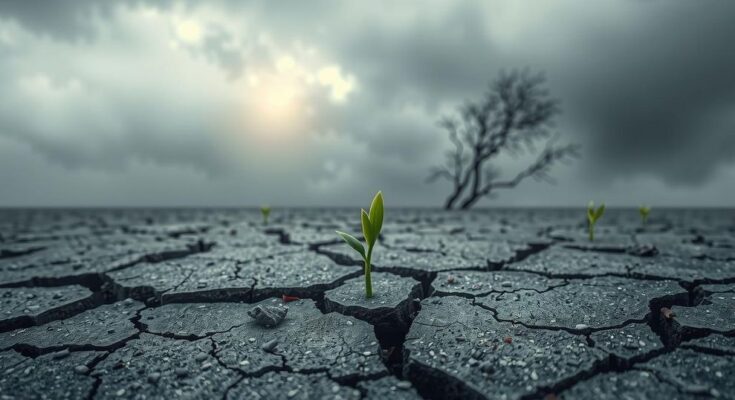A 5.2-magnitude earthquake struck northern Morocco, recalling traumatic memories from the 2023 Atlas earthquake. The quake, centered in Brikcha, caused fear rather than significant damage. Residents across cities reacted with anxiety, reminiscent of past losses. Psychologists indicate that PTSD is prevalent among many Moroccans, with state support lacking for mental health recovery.
On Monday night, a 5.2-magnitude earthquake struck northern Morocco, causing tremors felt as far away as Rabat. The event evoked unsettling memories of the devastating 2023 Atlas earthquake, bringing a wave of fear to local residents. The earthquake’s epicenter was located in the Brikcha commune of Ouazzane province, a rural area characterized by less severe mountainous terrain compared to the affected Atlas region.
Aicha Khayi, a Brikcha resident, recounted her panic as she felt the ground shake, fearing entrapment under debris and loss of acquaintances, reminiscent of the tragic events from September 2023. Brikcha, home to approximately 9,400 inhabitants spread across 25 villages, boasts better accessibility than some isolated communities in the Atlas, thus mitigating potential devastation.
Nasser Jabour, head of the National Institute of Geophysics, assessed that there would not be major destruction from this recent tremor. While older buildings in Brikcha may have developed some cracks, he indicated that the earthquake’s magnitude and geographical features made it less likely to result in a disaster. Local authorities reported no significant injuries or damage.
In the aftermath, residents from Tangier to Rabat evacuated their homes, driven by trepidation and memories of the previous, catastrophic quake. Mohamed El-Wardi, a Kenitra resident, expressed relief but emphasized the community’s struggle to handle more loss and trauma. Reports of people praying and reciting Quranic verses highlighted a shared sense of anxiety across cities.
According to Souhail Abounaim of the organization Psychologues Maghreb, the psychological impact of the latest tremor is profoundly intertwined with the traumatic experiences from the previous earthquake, where nearly 3,000 people perished, and many others were displaced. Even more than a year later, hundreds of thousands are still waiting for necessary assistance.
Psychologues Maghreb has indicated the potential onset of Post-Traumatic Stress Disorder (PTSD) among many Moroccans, worsened by the recent quake. With inadequate state resources for mental health care, numerous residents are enduring ongoing trauma. Abounaim emphasized that recovery efforts in the affected areas require substantial resources and time. He criticized the government’s lack of psychological support, stating that “the state is offering nothing.”
The recent earthquake in Morocco has not only caused physical tremors but also reignited deep-seated fears and trauma from the previous catastrophe in 2023. Residents are grappling with potential PTSD due to insufficient psychological support and lingering memories of loss and destruction. Authorities emphasize the need for continued efforts in mental health assistance while addressing the wider consequences of natural disasters on communities.
Original Source: www.newarab.com




